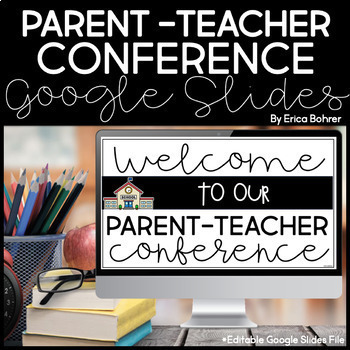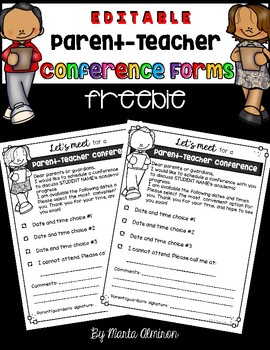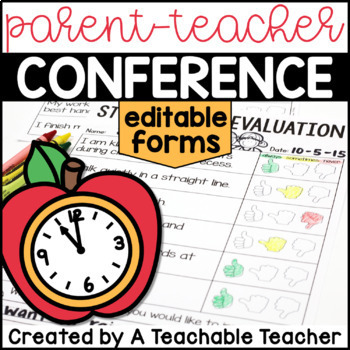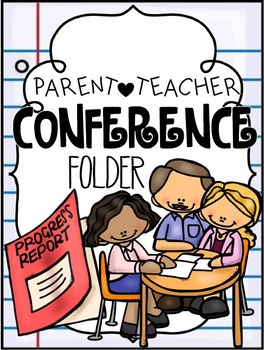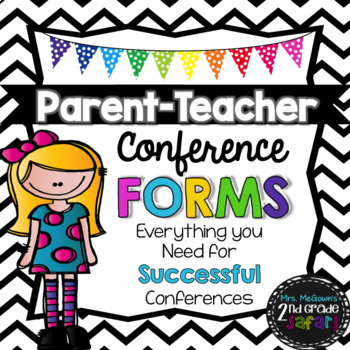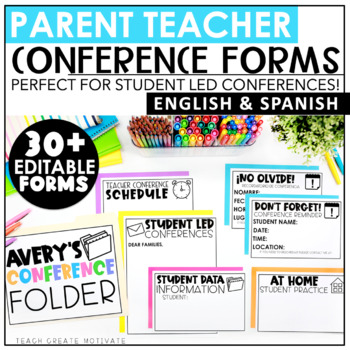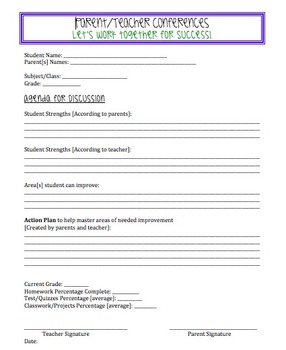Education
Parent-Teacher Conferences: Strategies and Forms for Teachers to Prepare
[ad_1]
Parent-teacher conferences are invaluable moments to connect with caregivers and guardians, discuss their child’s academic and social-emotional progress, and brainstorm ways they might support their child’s growth. Yet, for many teachers (and caregivers!) they can feel intimidating, on top of everything else. What if no one shows up? What if the conversation goes awry? What if there’s tension? While it’s natural to feel anxious, there are a few strategies you can use to make these meetings as worry-free as possible. Keep reading for tips on how to have a productive meeting with your students’ caregivers, along with some parent-teacher conference forms to help you get organized beforehand.
7 Strategies for a Successful Parent-Teacher Conference
Parent-teacher conferences are a great opportunity for families and educators to share insights about students and to build bridges between home and school. Here are seven strategies you can implement to have positive and productive meetings.
Offer flexible attendance options.
Sometimes, it’s hard for adults to attend these meetings. For example, some have more than one child in the school or work multiple jobs. In these cases, caregivers and guardians might need flexible scheduling options from the teacher. If possible, offer a range of meeting times (in both the morning and early evening) that parents can choose from. For those who simply cannot make it in person, block off time during parent-teacher conference week for virtual meetings via video conferencing (or phone!).
Prepare a mini script or agenda.
Often, these meetings run on a tight schedule. Come up with a script or an agenda of items to ensure you prioritize the most important points. Having this prepared ahead of time will not only help keep things moving, but also prevent the conversation from going off-track. Here’s an example of an agenda for a short meeting:
- Introduce yourself and share something positive about the student
- Summarize learning goals
- Walk through examples of areas of strengths and areas for growth
- Provide resources or name some actions to support their child’s growth at home
- Answer questions and provide contact information
Start the conversation off on a positive note.
Positivity goes a long way toward building productive relationships with caregivers. It lets them know you’re on their child’s side and that you’re genuinely invested in the student’s wellbeing. Try to start off each conversation with a short anecdote, a compliment, or a positive experience you’ve had with the student.
Share stories and examples of student work.
One of the goals of parent-teacher conferences is to help give caregivers a clearer idea of what their child has been learning. Visual examples of student work is an effective way to give parents insight into where their students are doing well and where they can improve. While you likely won’t be able to prepare more than a few samples, having these ready can go a long way in supporting the points you’re trying to make and increasing buy-in.
For this part of the meeting, you can share ownership with students by having them choose the examples themselves. During class, partner with students to choose one piece of work they’re proud of and one piece of work that they could improve. Together, you can identify the strengths they leaned on when working on the first piece and the challenges they faced when working on the second.
Have students lead the conversation.
In many schools, educators are transforming the model of the traditional teacher-led parent-teacher conferences in favor of student-led meetings. This format can provide the opportunity for middle and high school students, in particular, to reflect on and discuss their own learning. Before the conference, have students maintain a portfolio of work. Then, during the conference, students can use that portfolio as a jumping off point for a discussion with caregivers around their strengths, areas for growth, and learning goals.
Provide ways parents can help at home.
Studies show that parental involvement can lead to higher grades, better attendance, and increased participation. So the more teachers encourage parents in their roles as the primary educators and role models, the more the child will benefit (and the more fruitful classroom learning will become). To help, teachers can offer suggestions for carrying over concepts from the classroom to the home: “You can help your child with their algebra homework by asking them to explain how they got an answer,” or “As you’re reading stories at night, ask your child to predict what will happen next to help strengthen his reading comprehension.”
Parent-teacher conferences are also a good moment to chat about homework expectations and policies. At this point in the year, parents likely will have questions about how they can help with homework, so be prepared to address those questions. (We have a few tips and tricks here that you can share!)
Carve out time for questions.
A good parent-teacher conference is much more than just giving a status report about a child’s academic performance or their behavior in class. Ideally, it’s a two-way flow of information. Be sure to dedicate time and space for caregivers and guardians to ask questions and discuss the things you’ve gone over.
Stay in touch after the meeting is over.
Another goal of these meetings is to open lines of communication between teachers and families to support students’ learning and growth together. Make sure they have all the information they need to contact you if they have questions or concerns at any point during the school year.
13 Parent-Teacher Conference Forms to Help You Get Organized
Use these parent-teacher conferences forms to prepare for and guide your conversation with caregivers.
For Elementary School Parent-Teacher Conferences
Donut Lovin’ Classroom Forms by Donut Lovin’ Teacher
Not Grade Specific
Parent Teacher Conferences Slides by Erica Bohrer
Grade: PreK-5
Parent-Teacher Conference Forms {EDITABLE} FREEBIE by Marta Almiron- Tweets From Kindergarten
Grade: PreK-6
Parent Teacher Conference Forms – Editable by A Teachable Teacher
Grade: K-3
Parent/Teacher Conference Packet by Teaching with Terhue
Grade: K-3
Parent-Teacher Conference Forms! Now in EDITABLE format! by Monica MeGown
Grade: K-5
Reading Level Guide: Parent’s Handbook for Level Books- English & Spanish BUNDLE by The Template Teacher
Grade: K-6
Parent Teacher Conference Forms Editable Reminder Sign Up Sheet Data Tracking by The Little Ladybug Shop
Grade: 1-5
Parent Teacher Conference Forms Editable | Student Led Conferences | Digital by Teach Create Motivate
Grade: 2-5
For Middle & High School Parent-Teacher Conferences
Parent Teacher Conference Forms (Editable Templates) – Middle/High School by Fowler Factory
Grade: 5-12
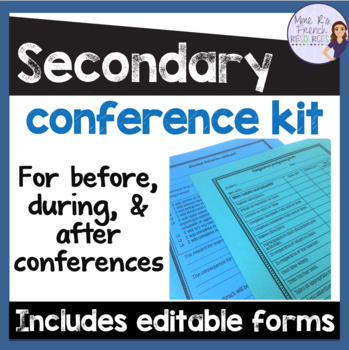
Parent/teacher conference forms and behavior contracts for secondary teachers by Mme R’s French Resources
Grade: 7-10
Parent Contact Information Sheet – Form for Communication with Parents, Families by Mondays Made Easy
Grade: 7-10
Browse TPT to discover more forms and resources you will need for fall and spring parent-teacher conferences.
This blog post, originally published in 2021, has been updated for 2023.
[ad_2]
Source link
Related posts:




